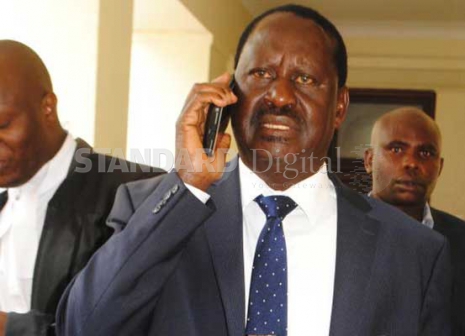×
The Standard e-Paper
Join Thousands Daily

Did NASA presidential candidate Raila Odinga commit a political hara-kiri with his decision to boycott the October 26 re-run?
The NASA leader may have, as the Japanese say, disemboweled himself politically by making his decision 24 hours before the High Court pronounced itself on the candidature of Ekuru Aukot.